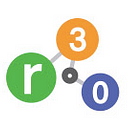Social Norms & Social Tipping Points — A Review of the Latest Research
Part One of Two
By Bill Baue
Almost a half century ago, my father — a cardiothoracic surgeon heading up Yale’s Department of Surgery — identified Multiple Systems Failure, the body’s response to trauma whereby the collapse of a single organ system triggers a cascade of collapses (a tipping point, if you will) in other organ systems, ultimately leading to collapse of the overall system (death, in more plain language) when untreated. Over the coming decades, researchers in the physical and social sciences increasingly came to understand that earth’s ecological systems can experience similar tipping points of non-linear phase shifts into new states of being (that may not accommodate human existence); and that social systems can likewise quickly tip into novel configurations that can present adversity (such as a bank or even financial system collapse) or benefit (such as the legalization of gay marriage or the rapid rise in awareness of racial injustice due to #BlackLivesMatter after George Floyd’s murder.)
It is this double-edged sword aspect of tipping points — creating existential risk on the one hand, or potential salvation on the other — that has increasingly focused attention in recent years. Indeed, there’s an emerging line of thinking that Social Tipping Points (STPs) — or rapid shifts in social norms, the glue that holds human communities together in common beliefs and behaviors — represent a “Hail Mary” that can help avert the growing likelihood of triggering point-of-no-return climate tipping points (CTPs) and biodiversity tipping points (BTPs), along with societal and civilizational collapses.
This intersection will be the focal exploration in the 10th International r3.0 Conference’s final Session, Tipping into Prosocial Norms — Triggering beneficial social norm tipping points to avert adverse tipping points. To prepare, we at r3.0 are immersing ourselves in the research and practice, which builds on our decades of experience focused on sustainability thresholds — the precursors that create “buffer zones” against adverse tipping points — and we devote this edition of What We’re Reading to reviewing key developments in the research and practice.
To understand the positive potential of Social Tipping Points, it’s key to understand how social norms work — and in particular, how they can shift rapidly by crossing tipping points. It turns out we don’t actually understand social norms as well as we might think!

This, according to a very important paper published just last week by the Societies journal, The Behavior of Information: A Reconsideration of Social Norms. In it, authors Jennifer Loughmiller-Cardinal (who will speak in this Session) and Scott Cardinal assert that social norms are essentially emergent strategies that human communities and social network intuitively employ to mutually process information in ways that enable behavior coordination as an enactment of sociality as evolutionary adaptation.
The Cardinals introduce two important headwinds, and one key tailwind for understanding social norms in ways that enable optimization.
Headwinds
First, the Cardinals note that human institutions are commonly “considered centralizing and regulatory social entities through which cohesive practices of a group are maintained.” By this understanding, institutions exist to reinforce pre-existing social norms, and thus play a retroactive role of normative conservation. This role may have been quite useful in times of slow evolutionary development, but the current Great Acceleration context requires much swifter evolutionary adaptation.
“Overly rigid institutional rules become infeasible or maladaptive when naturally accruing adjustments to underlying information and expectations exceed the allowable tolerance of the institutional parameters.”
The Cardinals thus propose a radically different understanding of the role of normative institutions: instead of reinforcing and calcifying extant social norms, institutions can instead play a more dynamic role in supporting the collective filtering of information to help coordinate emergent and adaptive social norms.
“The functional impetus for social institutions shifts from an a priori role in regulating performance towards an expression of the collectively evaluated bounds of optimal experiential outcomes … The status of social institutions becomes part of the overall framework within the process of transforming social experience, through information, into social expectation.”
In other words, instead of primarily maintaining continuity with the past, social institutions can serve more future-oriented functions of anticipation and adaptation through collective sense-making.
Second, the Cardinals recognize that social norms are just as subject to insidious and nefarious influence as they are to beneficial, prosocial influence.
“This fundamental role of norms in curating social information highlights the systemic risks of misguided or malicious manipulation of such norms or the information they represent… Importantly, however, it should be noted that what we are discussing here are not the probabilities that some piece of information is true, but evaluation of the probability that it should be believed to be true. There is a difference between the validation of belief and the verification of information. Although ideally the former serves to promote the latter, if a belief network encompasses some portion of false information it can just as readily promote belief towards a false conclusion. The implications of the potential propagation of false belief networks cannot be overstated.”
Think: climate denialism and predatory delay.
Tailwinds
To understand the significant tailwinds that the Cardinals’ radical reorientation to social norms provides, just flip the above equation (“the systemic risks of misguided or malicious manipulation of such norms or the information they represent” and the “propagation of false belief networks”) on its head. Namely, the curating of social information can be leveraged toward the propagation of true belief networks that accurately process information into prosocial social norms. The Cardinals assert that this orientation offers “adaptive advantages”:
“Norms and the collective practices they promote are not byproducts of or mechanisms for the evolution of social behavior, but the foundations on which it rests.”
In other words, we can leverage social norms toward evolutionary adaptation that’s fit-to-task for navigating our rapidly changing reality of collapsing ecological and social systems.
In Part Two of this article, Bill will review more new research on social norms and social tipping points.
